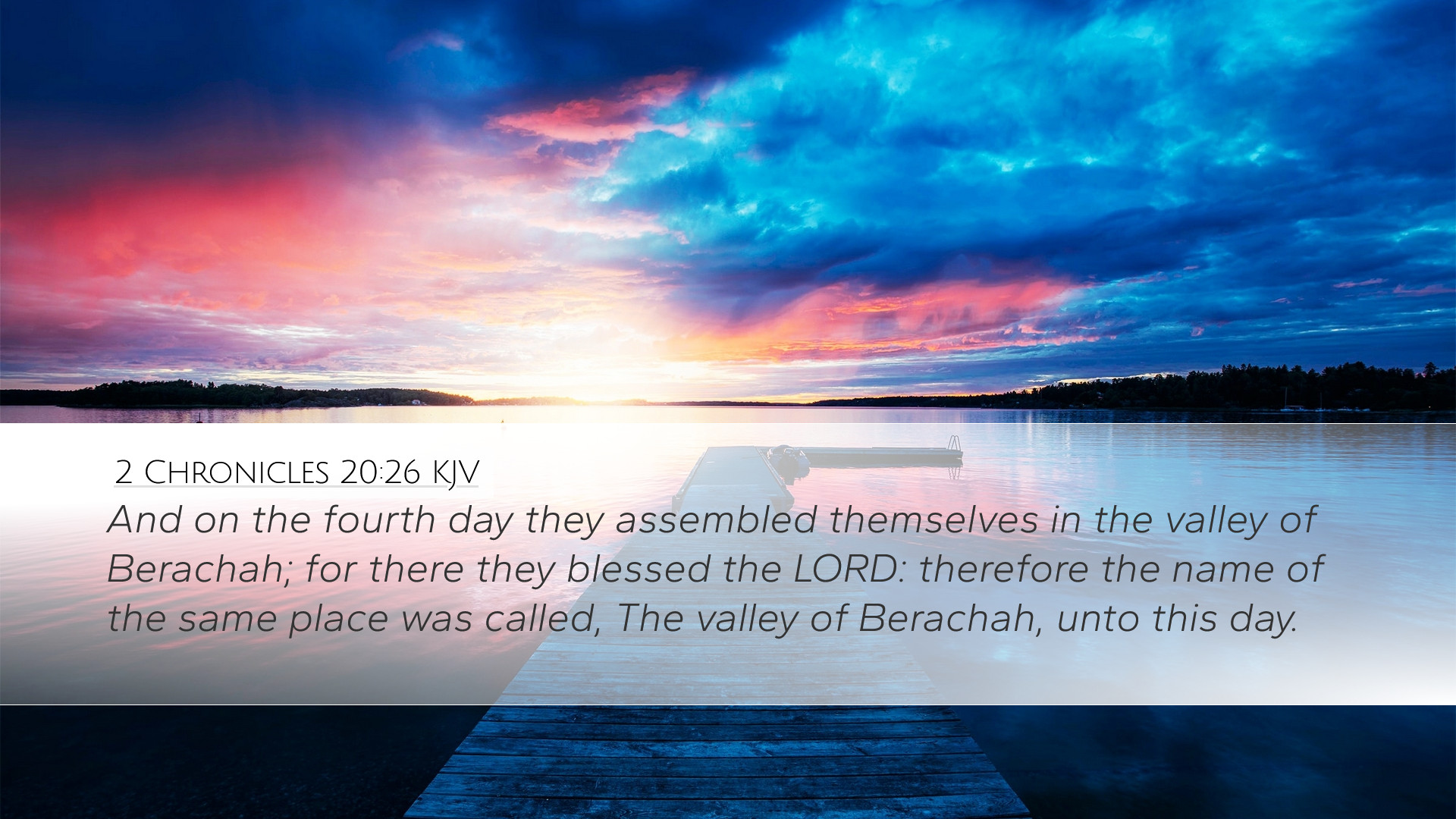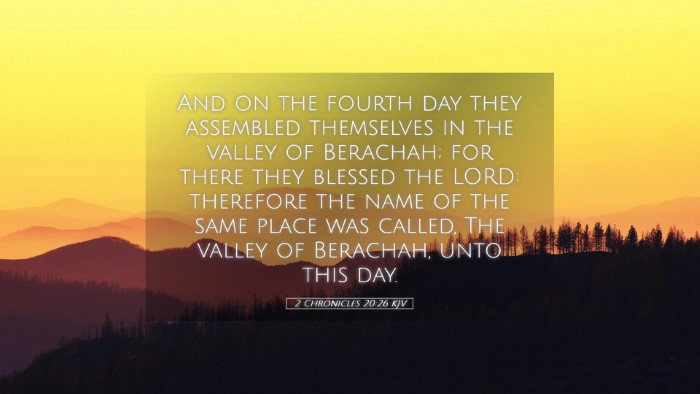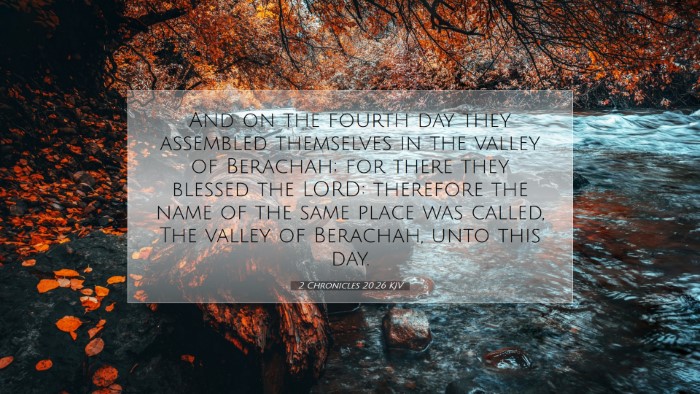Commentary on 2 Chronicles 20:26
The verse 2 Chronicles 20:26 states, "And on the fourth day they assembled themselves in the valley of Berachah; for there they blessed the LORD: therefore the name of the same place was called The valley of Berachah, unto this day."
Context and Background
This verse is set against the backdrop of King Jehoshaphat’s reign, where he faced a formidable alliance of enemies from Moab, Ammon, and Mount Seir. The king’s reliance on God through prayer and seeking guidance led to a miraculous victory. Their triumph resulted not just in physical deliverance but also in deep spiritual blessings.
The Valley of Berachah
The name "Berachah" translates to "blessing", which is significant in recognizing how God rewards His people for faith and trust in Him. The assembly at this location emphasized gratitude and acknowledgment of God’s intervention.
-
Matthew Henry: Emphasizes the importance of gathering to bless the Lord in times of victory, as it demonstrates a communal acknowledgment of God’s sovereignty.
-
Albert Barnes: Points out that this gathering reflects the character of the Israelites as a thankful people, understanding that each battle won is a reflection of divine favor.
-
Adam Clarke: Notes that the valley serves as a reminder for future generations about God’s faithfulness, implying a continuous call to bless God in remembrance of His great acts.
The Significance of Assembly
The act of coming together to praise God can be seen in various instances throughout scripture, echoing the communal aspect of worship among believers.
-
Jehoshaphat’s leadership in gathering his people to acknowledge God reflects a profound principle in Christian leadership: the necessity of corporate worship to strengthen faith.
-
This assembly was not just for thanksgiving, but it also served to reinforce the collective identity of the Israelites as God’s chosen people.
Theological Implications
The events depicted in 2 Chronicles 20:26 yield significant theological implications regarding the nature of God’s providence, grace, and the importance of communal worship.
-
Divine Providence: The victory over their enemies illustrates the sovereignty of God over human affairs. He delivers not solely through military might but rather through faith-filled praise.
-
Grace in Response to Faith: The blessings received reflect the biblical principle that God responds to sincerity in seeking His face, a recurring theme throughout Scripture.
-
Importance of Memory in Worship: The valley being named after the event serves as a reminder for future generations, emphasizing that the act of remembering God’s blessings fuels faith in uncertain times.
Application for Today
For pastors, students, theologians, and Bible scholars, 2 Chronicles 20:26 invites several contemplative applications that can be implemented in both individual and church contexts:
-
Emphasizing the importance of gratitude in congregational life can inspire believers to form a deeper understanding of God’s providence.
-
Creating spaces for communal celebrations of God’s blessings may enhance the unity of the church and encourage testimonies of God’s faithfulness.
-
Encouraging prayerful dependence on God in challenging circumstances is vital; this reflects the model set by Jehoshaphat in seeking the Lord before going into battle.
Conclusion
In conclusion, 2 Chronicles 20:26 stands as a powerful narrative of faith, obedience, and communal worship. It teaches that as believers come together to acknowledge God’s blessings, they reinforce their identity as His people and testify to His unyielding faithfulness. Embracing the principle of blessing God in every circumstance nurtures a heart of gratitude and a spirit of unity among the family of faith.


